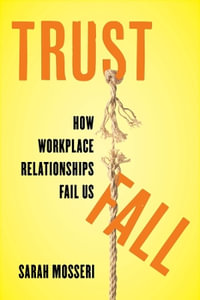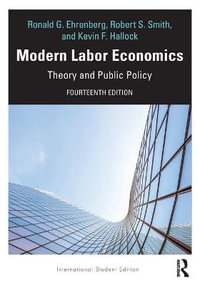This book challenges this free market orthodoxy. The chapters include both cross-country analyses and individual country case studies by leading labor economists from seven North American and European countries. The unifying theme across the essays is that the orthodox case for blaming persistent high unemployment on labor market institutions is simply not supported by the available evidence. This question has enormous policy significance. Since the individual, economic and social costs of unemployment are so high, we need to fight unemployment as effectively as possible. But it is often forgotten - often by well-paid tenured economists - that eliminating social protections through rolling back the welfare state has high individual, economic and social costs as well. The essays in this volume suggest that the conventional focus on labor market deregulation has been misplaced. More plausible sources of joblessness include tight European macro economic policy,political instability, poor coordination between "social partners" (employers, unions, and the state), the challenge of responding to rapid demographic changes (the "baby boom"), and the need for rapid shifts in employment from agriculture, mining and heavy industry to service jobs in some less developed regions.
Industry Reviews
"The essays in this book are an in-depth challenge to the received wisdom that labor market rigidity is to blame for poor employment performance, in Europe and elsewhere. Though not all readers may agree with the nuances, these essays contain a wealth of interesting data analysis and discussion. This volume serves as a perfect antidote to the view that comprehensive labor market deregulation is the only way forward."-Jonas Agell, Professor of Economics,
Stockholm University
"This is a well-structured set of contributions that seriously challenge the conventional line that when unemployment is high and persists it is largely due to labor market inflexibilities and rigidities caused by labor market institutions. The contributors present evidence to make it very clear that this view is weak at best and is not at all robust. This is an important point to make, given the widespread acceptance of the conventional view in policy circles
around the world and an important challenge for economists to look more carefully at the complex mechanisms that underpin unemployment and inequality."-Stephen Machin, Professor of Economics,
University College London, and Research Director, Centre for Economic Performance, London School of Economics
"This is a 'must-read' book that confronts the conventional wisdom on unemployment without resort to ideology and makes a compelling case that deregulating labor markets and sharply curtailing welfare institutions such as unemployment benefits will not cure unemployment. The evidence against the conventional wisdom mounts as one reads through the chapters."-Eileen Applebaum, Professor, School of Management and Labor Relations Director, Center for Women and
Work, Rutgers, The State University of New Jersey
"The essays in this book are an in-depth challenge to the received wisdom that labor market rigidity is to blame for poor employment performance, in Europe and elsewhere. Though not all readers may agree with the nuances, these essays contain a wealth of interesting data analysis and discussion. This volume serves as a perfect antidote to the view that comprehensive labor market deregulation is the only way forward."-Jonas Agell, Professor of Economics,
Stockholm University
"This is a well-structured set of contributions that seriously challenge the conventional line that when unemployment is high and persists it is largely due to labor market inflexibilities and rigidities caused by labor market institutions. The contributors present evidence to make it very clear that this view is weak at best and is not at all robust. This is an important point to make, given the widespread acceptance of the conventional view in policy circles
around the world and an important challenge for economists to look more carefully at the complex mechanisms that underpin unemployment and inequality."-Stephen Machin, Professor of Economics,
University College London, and Research Director, Centre for Economic Performance, London School of Economics
"This is a 'must-read' book that confronts the conventional wisdom on unemployment without resort to ideology and makes a compelling case that deregulating labor markets and sharply curtailing welfare institutions such as unemployment benefits will not cure unemployment. The evidence against the conventional wisdom mounts as one reads through the chapters."-Eileen Applebaum, Professor, School of Management and Labor Relations Director, Center for Women and
Work, Rutgers, The State University of New Jersey

























